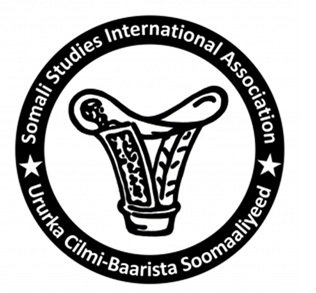Dr. Abdurahman Baadiyow
I have discovered two significant letters written by Dr. Mohamed Adan Sheikh and Dr. Hussein Tanzani, which serve as primary documents illuminating the early history of the Somali Studies International Association (SSIA). One of these letters, dated August 1, 1979, was authored by Dr. Mohamed Adan Sheikh in his capacity as the Chairman of Halgan Magazine, the official publication of the Somali Socialist Revolutionary Party. In this letter, Dr. Sheikh extended an invitation to scholars to participate in an international symposium sponsored by Halgan under the theme “Somalia and the World.” The proposed symposium aimed to explore a range of critical subthemes, including the revolutionary transformations occurring within Somalia, the broader question of self-determination, regional conflicts in the Horn of Africa, and the development of a framework for international Somali studies.
On the same date, August 1, 1979, Dr. Hussein Mohamed Adan (commonly known as Tanzani), a member of the editorial board of Halgan Magazine and the Chairman of the SSIA, issued a parallel letter inviting scholars to participate in the upcoming symposium. In his letter, Dr. Hussein Tanzani offered a brief introduction to the SSIA, highlighting its recent formation and academic mission. He noted that the SSIA was officially launched on Saturday, November 4, 1978, by a collective of Somali and international scholars and associates during a Somali Studies panel held at the annual convention of the African Studies Association (ASA) in Baltimore, USA. The creation of SSIA marked a pivotal step in institutionalizing Somali studies within global academic networks. Its primary objective, as articulated by Dr. Tanzani, was to foster scholarly interest in and expand knowledge about Somalia and its neighboring regions in the Horn of Africa, particularly within the broader frameworks of African and Afro-Arab studies. His letter not only reinforced the call to participate in the symposium but also underscored the association’s vision of integrating Somali studies into the global academic discourse on Africa and the Arab world.
In his letter, Dr. Hussein Tanzani urged scholars to graciously accept the invitation extended by the Somali government to attend the international symposium, which was being organized as part of the official commemoration of the 10th anniversary of the Somali Revolution. Emphasizing the significance of the event, he framed it not only as a moment of national celebration but also as an opportunity for academic engagement and transnational dialogue on Somalia’s revolutionary path and its broader regional and global implications. Dr. Tanzani assured potential participants that the symposium proceedings would be formally documented and published, thereby contributing to the growing body of scholarly literature on Somali society, politics, and history. His appeal reflected a broader ambition to position Somali scholarship within the international academic arena and to align intellectual production with the revolutionary ideals of the time.
After 47 years marked by political instability, state collapse, and protracted conflict in Somalia, the field of Somali studies has taken a significant and promising step forward. This development signals a renewed commitment among scholars, both Somali and international, to critically engage with the country’s complex history, culture, and evolving sociopolitical dynamics. The resurgence of Somali studies not only reflects an intellectual revival but also represents an effort to reclaim and reconstruct historical narratives, promote indigenous knowledge systems, and contribute to the broader discourse on nation-building and post-conflict recovery. In this context, the revitalization of scholarly interest in Somalia serves as a vital platform for dialogue, research, and collaboration, offering new pathways for understanding the past and shaping the future of the Somali people and the wider Horn of Africa.
The growth of higher education institutions in Somalia and the increasing engagement of the educated Somali diaspora have played a pivotal role in revitalizing and advancing research within the field of Somali studies. Diaspora scholars, drawing on their academic training and global networks, have significantly contributed to producing new knowledge, mentoring emerging researchers, and fostering international academic collaborations focused on Somali issues. Simultaneously, the establishment of specialized institutes dedicated to Somali studies—such as the Institute of Somali Studies at Mogadishu University, the Heritage Institute for Policy Studies, and several other research centers across the region and abroad—has provided institutional support for scholarly inquiry, policy research, and cultural preservation. The proliferation of academic journals, the publication of numerous books, and the organization of book fairs and literary events further reflect the growing vitality and visibility of Somali studies. These developments signal a maturing field that is increasingly rooted in both local realities and global academic discourse, offering critical insights into Somalia’s history, society, politics, and its role in the wider Horn of Africa.
However, the dominant perspectives within Somali studies have long remained captive to the school of anthropology, which tends to place disproportionate emphasis on clan dynamics as the central explanatory framework for understanding Somali society. While the role of clans is undeniably significant, this exclusive focus has often overshadowed other equally important dimensions of Somali life and history. Since 1989, I have been developing a more comprehensive perspective that seeks to move beyond this anthropological reductionism. In particular, I argue for the inclusion of other critical factors—most notably Islam, which has shaped Somali identity, values, and institutions across centuries, as well as gender, which reveals the nuanced roles and contributions of women in Somali society. By integrating these often-overlooked elements, Somali studies can evolve into a more holistic and inclusive field that better reflects the complexity of Somali experiences and realities.
Dr. Abdurahman Baadiyow
Email: abdurahmanba@yahoo.com
———-
Dr. Abdurahman Baadiyow is a Professor of Modern Islamic History and a Senior Adviser for the Somali President on Peace and Reconciliation.
———–
Related articels
Historical trajectory of Somalia: An overview of key narratives and challenges By A. Baadiyow


Leave a Reply